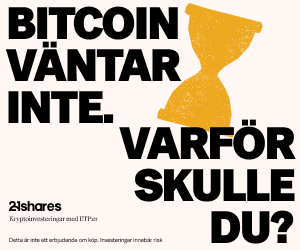Nyheter
Binance and Coinbase Lawyer up for a Long Battle; Will the U.S. Reach Regulatory Clarity?
Publicerad
2 år sedanden
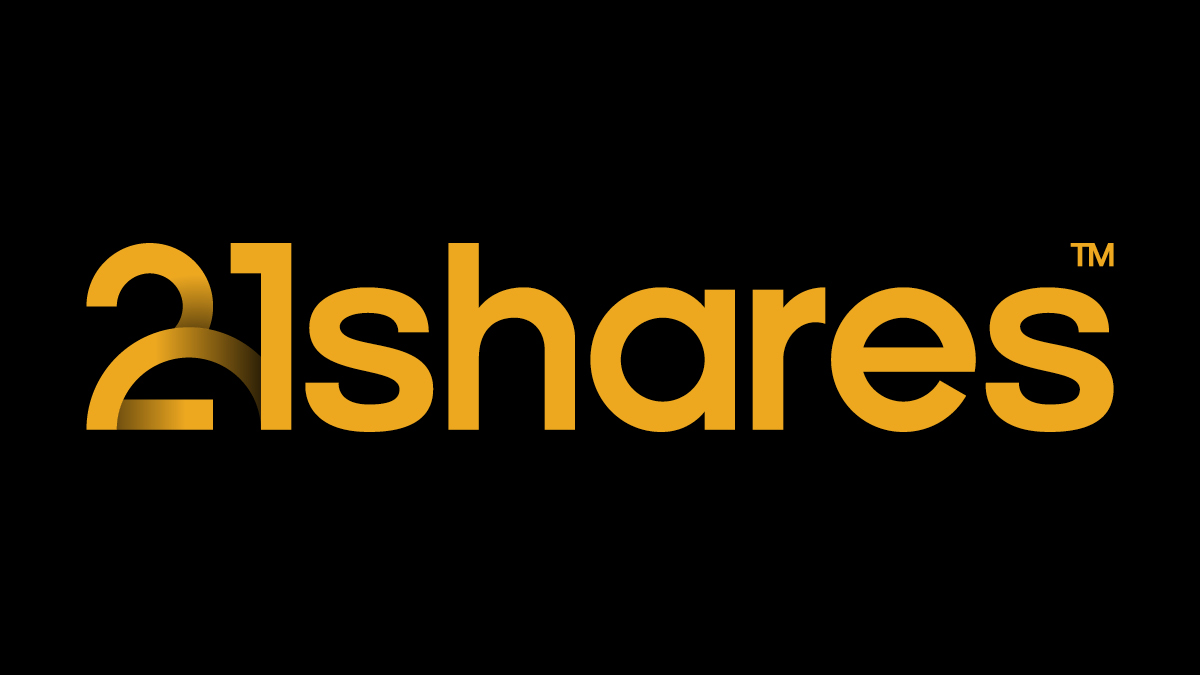
Markets are slowly recovering from the regulatory crackdown on Binance and Coinbase in the U.S. over the past few weeks. Bitcoin increased by 3%, while Ethereum fell by less than 0.5%. The performing settlement blockchains (Layer 1s) this week were Solana (+5.4%) and Binance Coin (+5%). As for the realm of scaling solutions (Layer 2s), Bitcoin’s scalability solution Stacks soared by almost 12%. In DeFi, MakerDAO, behind the largest decentralized stablecoin, DAI; came in as last week’s biggest winner, with a week-over-week performance of 12.4%. This jump can be attributed to the DAO’s consensus to increase DAI savings rate from 1% to 3.94%, as part of its broader roadmap which includes reshuffling the backing assets of its stablecoin.
Figure 1: 7-Day Price and TVL Developments of Cryptoassets in Major Sectors
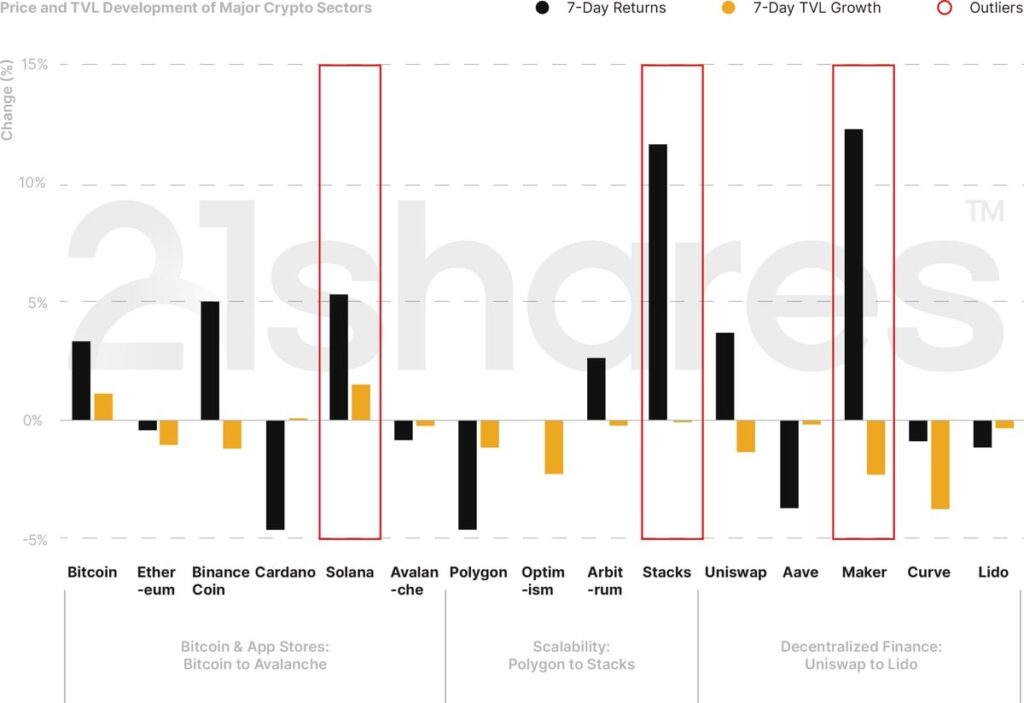
Source: 21Shares, CoinGecko, DeFi Llama. Close data as of June 12, 2023.
5 Things to Remember in Markets this Week
• Quick recap on inflation from a macro-heavy week:
o Consumer prices in the U.S. rose by a 4% annual rate in May. The rate came out slightly better than expected, recording the lowest in two years. In return, the Federal Reserve had room to skip a rate hike this month; a stop to ten consecutive hikes since March 2022.
o Inflation in the Euro area rose by a 6.1% annual rate in May, down from 7% in April. The European Central Bank (ECB) raised the interest rates by 25 bps to the highest level in more than 20 years.
o ECB President Christine Lagarde reiterated that the interest hikes won’t pause until the central bank ensures inflation returns to the 2% medium-term target.
• Binance and the Securities Exchange Commission (SEC) reached a mutual agreement in regards to the SEC’s proposed asset freeze, which in essence would ensure that Binance.US assets stay in the US. This decision will stay in effect until a final judgment is made regarding the SEC’s lawsuit. With $2.2 billion of U.S. customer assets at stake, the U.S. arm of Binance was already taking risk-off precautionary measures by firing around 50 of its members since the SEC filed the temporary restraining order. This agreement is considered as a catch of breath for the exchange, which would have otherwise been put out of business in the country. Nonetheless, outflows amounted to $189M over the past week, over $65M of which happened on June 19.
Figure 2: Asset Flow on Binance U.S.
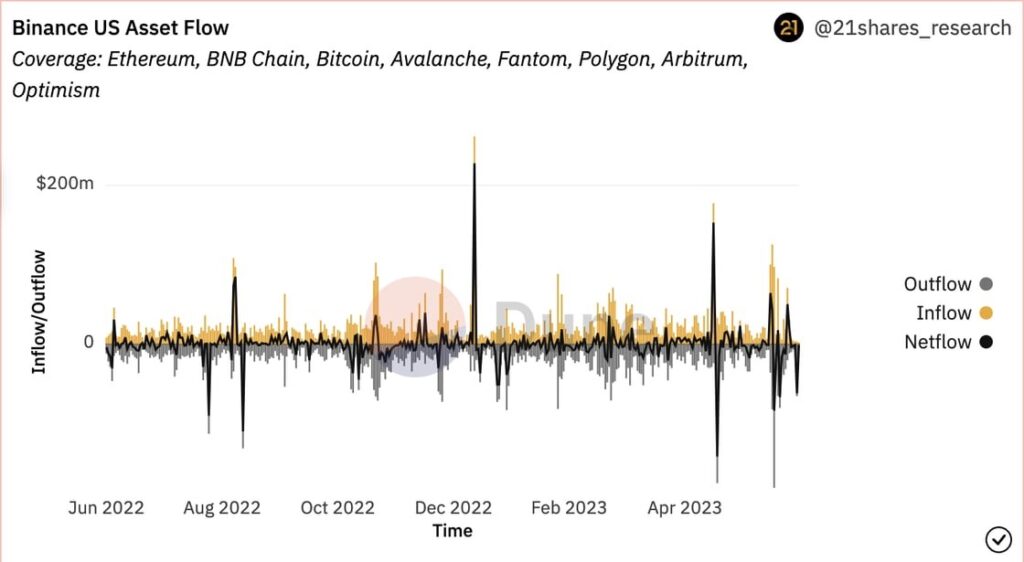
Source: Binance Proof of Reserves by 21shares on Dune Analytics
• The Uniswap Foundation released V4, an upgrade focused on improving the user experience and introducing advanced features reminiscent of trading on centralized exchanges. The core of this upgrade is ’hooks’, a new smart contract enabling developers to customize pools by integrating features like limit orders, dynamic fees, and auto-compounding LP rewards. Hooks is also expected to drive automated market maker (AMM) innovations, allowing execution of buy/sell orders over time to mitigate slippage and front-running risks like Time Weighted Average Price (TWAP). Additionally, V4 will introduce a unified smart contract for hosting all of the exchange’s pools, resulting in improved efficiency and reduced gas costs for users. With its dominance amongst decentralized exchanges, Uniswap’s refined user experience will accelerate the adoption of non-custodial platforms, competing with centralized platforms and providing a user intuitive environment.
Figure 3: Breakdown of the DEX Volume by Marketplace
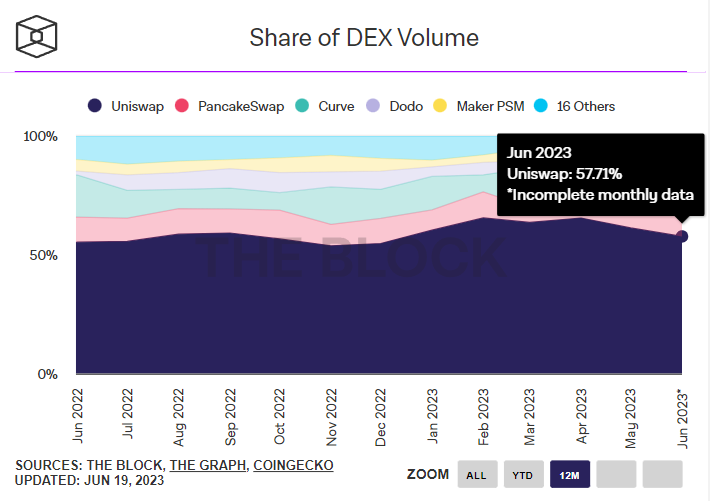
Source: The Block
• Tether’s USDT, the dominant stablecoin by market capitalization, experienced a 0.3% deviation from its peg due to substantial pressure from short-sellers. Notably, USDT’s liquidity share on Curve, the largest stablecoin exchange in DeFi against USDC and DAI, surged from $79 million on June 13 to $285 million on June 15, representing over 70% a historical indicator of short selling. It became evident that the main driver behind this speculative activity was the revelation of Tether’s quarterly financials for 2021, received by CoinDesk from the New York Attorney General’s office. The newly released documents indicate that nearly 70% of the stablecoin reserves were previously allocated to risky Chinese securities. That said, Tether’s backing quality significantly improved as it shifted its investments to US treasuries over the past 18 months, which can be verified here. Tether’s strategic move led to net profitability, on the back of the high-interest regime, which they announced will utilize 15% of these profits to purchase Bitcoin moving forward.
Figure 4: USDT liquidity on Curve’s 3Pool

Source: 21shares on Dune
• Bitcoin’s Web3 on build-mode: Ordinals developers introduced a method coined as “recursive inscriptions” that would overcome Bitcoin’s 4 MB per block size limitation that restricts the size of NFTs. By reducing transaction fees and increasing efficiency, developers suggest it could unlock 3D video games inscribed on Bitcoin. Inscriptions on the Bitcoin network will no longer be floating in siloes, unaware of other inscriptions. As of June 10, the new feature allows inscriptions to reference the content of other inscriptions using a special syntax. The crypto gaming industry was valued at $4.83B in 2022. While returns may be sluggish due to the competitive and more established gaming scene on Ethereum, Bitcoin has an inherent first-mover advantage that could flippen its rival if the developers succeed at beating Ethereum’s poor user interface and high gas fees.
Figure 5: Daily Ordinals inscriptions increased over the past week
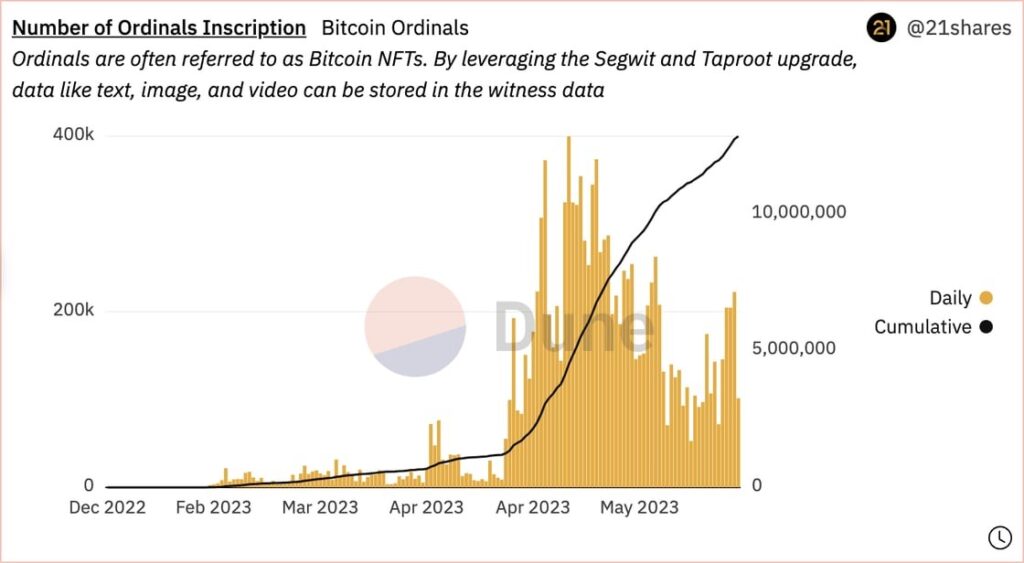
Source: Bitcoin Key Metrics, 21shares on Dune Analytics.
What You Should Pay Attention To
• BlackRock filed an application for a Bitcoin ETF with the SEC. BlackRock’s iShares Bitcoin Trust will leverage Coinbase Custody for holding the underlying digital assets, while using the Coinbase marketplace data to support the spot pricing. In addition, the asset manager will use Bank of New York Mellon to hold custody of the Trust’s cash holdings.
• Legal clarity pending in the U.S.: As lawsuits play out in the background, talks around regulating crypto continue to raise the issue of regulatory clarity for this emerging asset class. JP Morgan, with a considerable stake in Ethereum, suggested that Congress could either group ETH with BTC in the same commodity classification, or create a special category with requirements less burdensome than those of securities. Another comprehensive bill is scheduled for a House committee vote on July 11. All eyes are on Congress these coming few weeks.
• Eigenlayer, an Ethereum-based protocol focused on ETH re-staking, has successfully deployed the first stage of its mainnet. This new primitive extends the crypto-economic security of staked ETH to external applications, enabling the creation of a decentralized trust marketplace to secure additional protocols. Eigenlayer is expected to support various networks that require consensus agreement, like oracles, bridges, and appchains while offering ETH validators the freedom to selectively engage with protocols based on risk tolerance for higher staking rewards, which is of course aided with higher penalization costs. That said, it’s important to recognize the primitive’s impact as it introduces a new paradigm of benefits and risks for ETH stakers. For context before further exploration, users reached the maximum limit of 3,200 units for each of the supported liquid staking derivatives (stETH, rETH, and cbETH), resulting in a total deposit of $17M during the first 24 hours, as shown below. The protocol is also expected to also fully go live by the end of the year.
Figure 6: EigenLayer Deposits by Token

Source: 21shares on Dune
• Reutilizing the economic security reduces the marginal cost of capital by minimizing expenses associated with launching new networks, and enhances trust guarantees for startup protocols. Restaking may drive more demand for Ethereum instead of other tokens, which expands the addressable market for Ethereum as the oil to supercharge the Web 3 economy. However, restaking introduces additional risks, such as vulnerabilities from external protocols. Insufficient incentives can also lead to staker misbehavior or negligence, posing risks of penalties or fund loss due to the absence of in-protocol incentivization. Further, chain forks and disagreements between protocols can also disrupt ETH’s consensus. Therefore, while restaking can support the growth of embryonic protocols, it must be carefully implemented to avoid overloading the main Ethereum network’s consensus and breaking it in the process.
Next Week’s Calendar
These are the top 3 events we’re monitoring for next week.
• Federal Reserve Governor Jerome Powell testifies: Powell is due to testify twice this week about the Semi-Annual Monetary Policy Report;.clues may be dropped around the Fed’s future plans for the monetary policy.
• Purchasing Managers’ Index (PMI): A leading indicator of economic health, measuring the level of a diffusion index based on surveyed purchasing managers in the manufacturing industry. We closely monitor this indicator since it indirectly influences market sentiment for crypto
• Rollux Mainnet Launch: Rollux is an EVM-L2 scaling platform that promises to deliver speed, security, affordability, and scalability; the key components demanded by the blockchain industry for mass adoption. We are monitoring this launch for the promises SysLabs has made earlier this month.
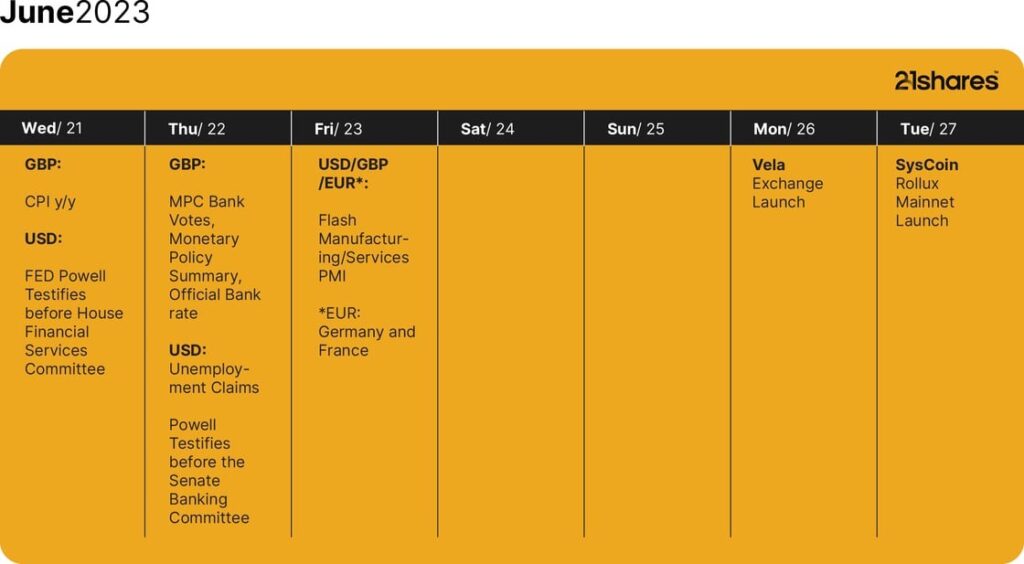
Source: Forex Factory, CoinMarketCal
Research Newsletter
Each week the 21Shares Research team will publish our data-driven insights into the crypto asset world through this newsletter. Please direct any comments, questions, and words of feedback to research@21shares.com
Disclaimer
The information provided does not constitute a prospectus or other offering material and does not contain or constitute an offer to sell or a solicitation of any offer to buy securities in any jurisdiction. Some of the information published herein may contain forward-looking statements. Readers are cautioned that any such forward-looking statements are not guarantees of future performance and involve risks and uncertainties and that actual results may differ materially from those in the forward-looking statements as a result of various factors. The information contained herein may not be considered as economic, legal, tax or other advice and users are cautioned to base investment decisions or other decisions solely on the content hereof.
Du kanske gillar
-


FalconX förvärvar den ledande ETP-leverantören 21shares, vilket accelererar konvergensen av digitala tillgångar och traditionell finans
-
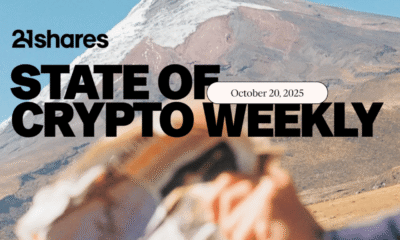

Bitcoin within 15% of its all-time high: Should you still allocate?
-
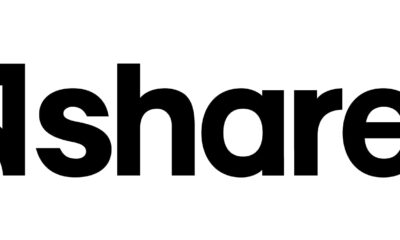

Globala krypto-ETPer förvaltade tillgångar når 250 miljarder dollar
-


Record crypto liquidations amid tariff shock
-
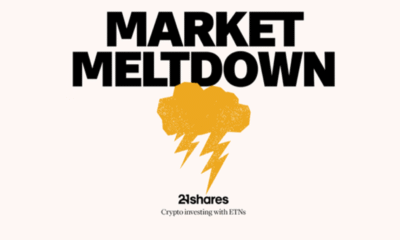

Crypto market update: record liquidations amid tariff shock
-
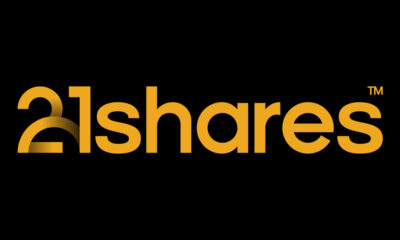

UK to drive more Bitcoin and Ethereum demand
Nyheter
FalconX förvärvar den ledande ETP-leverantören 21shares, vilket accelererar konvergensen av digitala tillgångar och traditionell finans
Publicerad
4 timmar sedanden
22 oktober, 2025
Förvärvet förenar FalconX marknadsledande Prime Brokerage-plattform med 21shares ETP-infrastruktur för att främja investeringsprodukter för digitala tillgångar
Markerar FalconX tredje strategiska transaktion under 2025, vilket understryker dess avgörande roll i att forma ekosystemet för digitala tillgångar
FalconX, en ledande institutionell Prime Brokerage-leverantör för digitala tillgångar, meddelade idag att de har gått med på att förvärva 21shares, leverantören av världens största utbud av börshandlade fonder och produkter (ETFer/ETPer) inom kryptovaluta. Transaktionen representerar en viktig milstolpe i FalconX strategi att accelerera konvergensen av noterade marknader och digitala tillgångar, samtidigt som den stärker sin globala närvaro i USA, Europa och Asien-Stillahavsområdet.
I en av de viktigaste ETP-branschtransaktionerna de senaste åren sammanför förvärvet 21shares expertis inom utveckling och distribution av tillgångsförvaltningsprodukter med FalconX institutionella infrastruktur, struktureringskapacitet och riskhanteringsplattform.
Tillsammans kommer de två företagen att accelerera skapandet av skräddarsydda investeringsprodukter som möter den växande institutionella och privata efterfrågan på reglerad exponering för digitala tillgångar.
Sedan grundandet 2018 av Hany Rashwan och Ophelia Snyder har 21shares vuxit till en global ledare inom digitala ETPer och förvaltar tillgångar till ett värde av över 11 miljarder dollar fördelat på 55 noterade produkter per den 30 september 2025. Dess egenutvecklade teknikplattform och väletablerade nätverk av partners ligger till grund för deras förmåga att snabbt och i stor skala lansera nya produkter på marknaden. FalconX, medgrundat av Raghu Yarlagadda, har underlättat handelsvolymer på över 2 biljoner dollar och en global kundbas på över 2 000 institutioner, tack vare sin kryptobaserade handels-, kredit- och teknikinfrastruktur.
”21shares har byggt en av de mest betrodda och innovativa produktplattformarna inom digitala tillgångar”, säger Raghu Yarlagadda, VD för FalconX. ”Vi bevittnar en kraftfull konvergens mellan digitala tillgångar och traditionella finansmarknader, då krypto-ETPer öppnar nya kanaler för investerarnas deltagande genom reglerade, välbekanta strukturer. FalconX har byggt den institutionella ryggraden för handel, derivat och kredit, och att utöka den infrastrukturen till börsnoterade marknader genom 21Shares är ett naturligt nästa steg mot att stärka marknadseffektiviteten. För FalconX är detta en medveten, långsiktig investering i att bygga ett varaktigt företagsvärde över marknadscykler.”
”Under de senaste 8 åren har vi byggt 21shares verksamhet från 0 dollar till mer än 11 miljarder dollar i förvaltat värde. Vi har skalat upp för att nå miljontals kunder i alla hörn av världen och fört in dem i krypto med våra produkter och vår forskning”, säger 21shares grundare Ophelia Snyder och Hany Rashwan. ”Vi ser verkligen fram emot att FalconX fortsätter att bygga vidare på denna starka grund för nästa kapitel i 21shares utveckling.”
”Vårt mål har varit att göra kryptoinvesteringar tillgängliga för alla genom branschledande börshandlade produkter”, säger Russell Barlow, VD för 21shares. ”Nu kommer FalconX att göra det möjligt för oss att agera snabbare och utöka vår räckvidd. Tillsammans kommer vi att vara pionjärer inom lösningar som möter de ständigt växande behoven hos investerare i digitala tillgångar världen över.”
Efter slutförandet kommer 21shares att fortsätta förvaltas oberoende under FalconX-paraplyet. Barlow kommer att fortsätta som VD för 21shares och arbeta nära ledningsgruppen på FalconX för att främja en gemensam vision för framtiden för ekosystemet för digitala tillgångar. Inga förändringar av konstruktionen eller investeringsmålen för de befintliga 21shares ETPerna (Europa) eller ETFerna (USA) är planerade.
Detta förvärv bygger på FalconX strategi för 2025 för att stärka sin globala verksamhet inom handel, kapitalförvaltning och marknadsinfrastruktur. Det följer integrationen av Arbelos Markets och majoritetsandelen som togs i Monarq Asset Management tidigare i år, tillsammans med expansioner i Latinamerika, Asien-Stillahavsområdet och Europa, Mellanöstern och Afrika. I takt med att digitala tillgångar utvecklas till vanliga investeringsprodukter placerar detta drag FalconX i centrum för hur institutioner och investerare får tillgång till kryptoekonomin.
Om FalconX
FalconX är en ledande mäklarfirma för digitala tillgångar för världens främsta institutioner. Vi erbjuder omfattande tillgång till global likviditet för digitala tillgångar och ett komplett utbud av handelstjänster. Vårt dedikerade team, som är tillgängligt dygnet runt för konto-, operativa och handelsbehov, gör det möjligt för investerare att navigera på marknaderna dygnet runt. FalconX Bravo, Inc., ett dotterbolag till FalconX, var den första CFTC-registrerade swap-handlaren som fokuserade på kryptovalutaderivat.
FalconX stöds av investerare som Accel, Adams Street Partners, Altimeter Capital, American Express Ventures, B Capital, GIC, Lightspeed Venture Partners, Sapphire Ventures, Thoma Bravo, Tiger Global Management och Wellington Management. FalconX har kontor i Silicon Valley, New York, London, Hongkong, Bengaluru, Singapore och Valletta. För mer information, besök falconx.io eller följ FalconX på X och LinkedIn.
”FalconX” är ett marknadsföringsnamn för FalconX Limited och dess dotterbolag. Tillgängligheten av produkter och tjänster är beroende av jurisdiktionella begränsningar och FalconX-enhetens kapacitet. För mer information om vilka juridiska personer som erbjuder specifika produkter och tjänster, vänligen se informationen på vår offentliga webbplats, som ingår häri, eller kontakta din relationskontakt.
Om 21shares
21shares är en av världens ledande leverantörer av börshandlade produkter för kryptovaluta och erbjuder de största sviterna av fysiskt stödda krypto-ETPer på marknaden. Företaget grundades för att göra kryptovaluta mer tillgänglig för investerare och för att överbrygga klyftan mellan traditionell finans och decentraliserad finans. 21shares noterade världens första fysiskt stödda krypto-ETP 2018 och byggde upp en sjuårig meritlista av att skapa börshandlade fonder för kryptovaluta som är noterade på några av de största och mest likvida värdepappersbörserna globalt. Med stöd av ett specialiserat forskarteam, egenutvecklad teknik och djupgående expertis inom kapitalmarknaden levererar 21shares innovativa, transparenta och kostnadseffektiva investeringslösningar.
För mer information, besök www.21shares.com.
Nyheter
Hybridreplikering: nästa stora grej för ETFer?
Publicerad
5 timmar sedanden
22 oktober, 2025
ETFer replikerar sitt index antingen fysiskt eller via syntetisk replikering – nu introduceras en ny replikeringsmetod av Scalable Capital
I ETF-världen sker det mindre och större produktrevolutioner då och då. En av dessa i år är förmodligen den nya ”hybridreplikeringen”. I den här artikeln tittar vi närmare på vad detta handlar om och vem som är först med att använda den i sina ETFer.
Hybridreplikering: Vad är det?
Replikeringsmetoder för ETFer kunde tidigare delas in i två grundläggande varianter: Fysisk och syntetisk replikering (även om fysisk replikering fortfarande har en underkategori med ”optimerad sampling”).
Som namnet ”hybridreplikering” antyder är denna nya replikeringsmetod en blandning av fysisk och syntetisk replikering.
ETFen replikerar således dynamiskt sitt underliggande index och kan använda både den ena och den andra varianten för att följa sitt index. Detta kan vara särskilt fördelaktigt för brett diversifierade globala ETFer för att optimalt kunna följa respektive delmarknader.
Vi ska titta närmare på exakt hur detta fungerar och fördelarna och nackdelarna med denna metod om en stund. Men först ska vi titta på de grundläggande skillnaderna mellan de olika replikeringsmetoderna.
Skillnaden: Fysisk, syntetisk och hybridreplikering av ETFer
I grund och botten erbjuder varje form av replikering vissa fördelar och nackdelar. Det är därför det tidigare fanns tre olika replikeringsmetoder som ETFer kunde använda för att replikera sitt motsvarande index. Nu läggs hybridreplikeringsmetoden till:
- (Fullständig) fysisk replikering används för att spåra lättillgängliga och mycket likvida marknader. ETF:er på DAX 40, FTSE 100 eller S&P 500 replikeras därför ofta direkt och fullständigt. De aktier som ingår är bland de största aktiebolagen i respektive land och är lätta att handla med. Dessutom är ansträngningen från ETF-leverantörernas sida att köpa några dussin eller några hundra aktier begränsad.
- Optimerad sampling används huvudsakligen för stora index med flera tusen aktiebolag. För att följa ett globalt globalt aktieindex som MSCI ACWI IMI räcker det till exempel att köpa ett representativt urval på cirka 3 500 aktier istället för de cirka 9 000 aktier som indexet innehåller. Detta sparar ETFen, och därmed dig som investerare, pengar och är mycket mer effektivt.
- Syntetisk replikering används företrädesvis för marknader som är svåra att komma åt, där direktköp av aktier är alldeles för dyrt eller försvåras av regulatoriska förhållanden. Swap-ETFer erbjuder också strukturella fördelar på vissa marknader – till exempel när det gäller källskattebesparingar. Mer om detta strax …
- Hybridreplikering är en kombination av fysisk och syntetisk replikering. En ETF som använder hybridreplikering kan själv inom ETFen bestämma vilka marknader den vill replikera direkt via fysisk replikering och vilka marknader som är bättre inkluderade i portföljen via swappar.
Jämförelse av ETF-replikeringsmetoder
| Fysisk (fullständig) | Fysisk (sampling) | Syntetiskt | Hybrid | |
| Replikerings- metod | Fullständig replikering | Sampling | Swap-based | Blandning av fysisk och syntetisk replikering |
| ETF-beskrivning | Indexet replikeras 1:1 i ETFen | ETF:n innehar ett representativt urval av indexaktier | Indexreplikering sker via en swaptransaktion | ETF innehar aktier både direkt och via swappartners |
| Underliggande tillgångar | Aktier, obligationer | Aktier, obligationer | Aktier, obligationer, råvaruindex, penningmarknadsindex, korta och hävstångsindex | Aktier |
| Typiska egenskaper hos index- komponenterna | Likvida värdepapper | (Delvis) illikvida värdepapper | Likvida och illikvida värdepapper, investeringsrestriktioner (handelsrestriktioner, beskattning), olika tidszoner | Likvida och illikvida värdepapper, investeringsrestriktioner (handelsrestriktioner, beskattning), olika tidszoner |
| Idealt antal indexkomponenter | Lågt | Högt | Låg till hög | Låg till hög |
| Ideal utdelnings- policy | Utdelande och ackumulerande | Utdelande och ackumulerande | Övervägande ackumulerande | Övervägande |
| Exempel index | DAX, Eurostoxx 50, FTSE 100, Dow Jones 30 | MSCI World, MSCI Emerging Markets, MSCI ACWI IMI | MSCI World, MSCI Emerging Markets, Eurostoxx 50 Rohstoff-Indizes, Short DAX, Leverage DAX | MSCI World, MSCI Emerging Markets, MSCI ACWI IMI, Eurostoxx 50 |
Hybrida replikerande ETFer är för närvarande endast tillgängliga på aktieindex
Hur fungerar hybridreplikering med ETFer?
Styrkorna med den nya replikeringsmetoden är särskilt tydliga i brett diversifierade aktieindex som MSCI ACWI eller FTSE All World. Syftet med hybridreplikeringsmetoden är att kombinera fördelarna med fysisk replikering med fördelarna med den syntetiska replikeringsmetoden. Hur fungerar detta i praktiken?
Ett exempel är swap-ETFer på S&P 500, som har en avgörande fördel jämfört med sina fysiskt replikerande syskon – det finns ingen källskatt på utdelningar.
Hur då? Medan fysiskt replikerande ETFer måste betala minst 15 % källskatt på amerikanska utdelningar eftersom de investerar direkt i amerikanska aktier, byter en swap-ETF helt enkelt indexets avkastning med ett motsvarande finansinstitut (motparten eller swappartnern).
Inga amerikanska aktier krävs i ETFens bärarportfölj. Och där inga amerikanska aktier köps direkt uppstår ingen källskatt. Detta är också anledningen till att syntetiska ETFer på S&P 500 har något högre långsiktig avkastning än fysiska S&P 500-ETFer.
Med syntetiska ETFer kan investerare också dra nytta av en unik strukturell dynamik på den kinesiska lokala A-aktiemarknaden. Denna specifika aktiemarknad är starkt begränsad eller reglerad och erbjuder samtidigt en attraktiv miljö för professionella investerare (t.ex. hedgefonder) som följer marknadsneutrala strategier.
Dessa investerare har dock ofta begränsad tillgång, till exempel för blankning för att säkra sin marknadsrisk. Som ett resultat är dessa marknadsaktörer beredda att betala swap-motparterna i syntetiska ETFer (vanligtvis stora banker) en premie på den korta exponering som motparterna är exponerade för.
Denna extra premie förs delvis vidare till investerare i syntetiska A-aktie-ETFer och har historiskt sett lett till överavkastning. Premien kan fluktuera över tid och är främst beroende av efterfrågan från dessa marknadsaktörer.
Jämförelse
En nackdel med en syntetisk ETF jämfört med en fysiskt replikerande ETF är att den kanske inte kan genomföra värdepappersutlåning om den inte innehar de nödvändiga värdepapperen i sin portfölj. Många swap-ETFer använder ändå inte värdepappersutlåning. Detta är dock ett vanligt sätt för ETF:er att generera ytterligare intäkter för fondinvesterare.
Motpartsrisk med swap-ETFer
Med swap-ETFer anges ofta den så kallade motpartsrisken som en stor nackdel. Men är risken med swap-ETFer verkligen så stor? Det korta svaret är: Nej. Därför att:
- Som regel innehar både ETFen och swap-motparten säkerhet i form av likvida värdepapper.
- Denna säkerhet måste alltid fysiskt säkra minst 90 % av nettotillgångsvärdet (NAV). Eller tvärtom: motpartsrisken är begränsad till maximalt 10 % av fondens tillgångar och balanseras dagligen.
- I praktiken är syntetiska ETFer ofta översäkrade (säkerhet > NAV) och du kan när som helst se säkerhetsportföljen och de valda swap-partnerna transparent på webbplatserna för många ETF-leverantörer.
- Hittills har europeiska investerare inte lidit några förluster på grund av swap-motpartsrisk – inte ens under de allvarligaste kriserna (t.ex. 2008 och 2020).
Och det är här hybridreplikeringsmetoden kommer in i bilden – eftersom den till exempel kan användas för att syntetiskt replikera den amerikanska marknaden ”källskatteoptimerad” i en global ETF, medan den europeiska eller japanska aktiemarknaden fysiskt replikeras ”värdepappersutlåningskonformt”. Resultatet är faktiskt kombinationen av ”det bästa av två världar” – eftersom respektive ETF optimalt kan kartlägga motsvarande delmarknader beroende på de strukturella förhållandena och därmed möjliggöra en minimalt högre avkastning för dig som ETF-investerare.
Viktigt: Syntetiska ETFer kan också låna ut värdepapper från carrierportföljen. Det beror sedan på vilka värdepapper i carrierportföljen som är efterfrågade och hur. Med högre efterfrågan eller mindre likviditet kan till exempel vanligtvis högre avkastning uppnås än med mycket likvida värdepapper. Du kan läsa mer om detta i vår artikel om värdepappersutlåning med ETF:er.
Vilka ETFer använder den nya hybridreplikering?
I dag erbjuder endast en leverantör en ETF på MSCI ACWI med hybridreplikering: Xtrackers. Den Frankfurt-baserade kapitalförvaltaren har samarbetat med onlinemäklaren Scalable Capital för att lansera en global ETF.
Nyheter
31IG ETF företagsobligationer med förfall 2031
Publicerad
6 timmar sedanden
22 oktober, 2025
iShares iBonds Dec 2031 Term EUR Corporate UCITS ETF EUR (Dist) (31IG ETF) med ISIN IE000I2WYEU9, strävar efter att spåra Bloomberg MSCI December 2031 Maturity EUR Corporate ESG Screened index. Bloomberg MSCI December 2031 Maturity EUR Corporate ESG Screened-index följer företagsobligationer denominerade i EUR.
Indexet speglar inte ett konstant löptidsintervall (som är fallet med de flesta andra obligationsindex). Istället ingår endast obligationer som förfaller under det angivna året (här: 2031) i indexet. Indexet består av ESG (environmental, social and governance) screenade företagsobligationer. Betyg: Investment Grade. Löptid: december 2031 (Denna ETF kommer att stängas efteråt).
Den börshandlades fondens TER (total cost ratio) uppgår till 0,12 % p.a. iShares iBonds Dec 2031 Term EUR Corporate UCITS ETF EUR (Dist) är den billigaste och största ETF som följer Bloomberg MSCI December 2031 Maturity EUR Corporate ESG Screened index. ETFen replikerar resultatet för det underliggande indexet genom samplingsteknik (köper ett urval av de mest relevanta indexbeståndsdelarna). Ränteintäkterna (kupongerna) i ETFen delas ut till investerarna (Årligen).
Denna ETF lanserades den 5 november 2024 och har sin hemvist i Irland.
Investeringsmål
Fondens mål är att uppnå avkastning på din investering genom en kombination av kapitaltillväxt och inkomst på fondens tillgångar, vilket återspeglar avkastningen från Bloomberg MSCI December 2031 Maturity EUR Corporate ESG Screened Index, fondens jämförelseindex.
Handla 31IG ETF
iShares iBonds Dec 2031 Term EUR Corporate UCITS ETF EUR (Dist) (31IG ETF) är en europeisk börshandlad fond. Denna fond handlas på till exempel Deutsche Boerse Xetra.
Det betyder att det går att handla andelar i denna ETF genom de flesta svenska banker och Internetmäklare, till exempel DEGIRO, Nordnet, Aktieinvest och Avanza.
Börsnoteringar
| Börs | Valuta | Kortnamn |
| XETRA | EUR | 31IG |
Största innehav
| Emittent | Vikt % |
| BANQUE FEDERATIVE DU CREDIT MUTUEL SA | 2.98 |
| BANCO SANTANDER SA | 2.24 |
| INTESA SANPAOLO SPA | 1.76 |
| BPCE SA | 1.52 |
| MERCEDES-BENZ GROUP AG | 1.32 |
| CREDIT MUTUEL ARKEA | 1.31 |
| TELEFONICA EMISIONES SAU | 1.29 |
| MEDTRONIC GLOBAL HOLDINGS SCA | 1.27 |
| SIEMENS FINANCIERINGSMAATSCHAPPIJ N.V. | 1.25 |
| VOLKSWAGEN LEASING GMBH | 1.06 |
Innehav kan komma att förändras

FalconX förvärvar den ledande ETP-leverantören 21shares, vilket accelererar konvergensen av digitala tillgångar och traditionell finans

Hybridreplikering: nästa stora grej för ETFer?

31IG ETF företagsobligationer med förfall 2031

Investera i Worldcoin med en börshandlad produkt

ISRC ETF ger exponering mot företagsobligationer denominerade i euro

Fokus mot en helt ny börshandlad produkt i september 2025

M5TYs senaste utdelningstakt (55 %) belyser covered call-strategins inkomstpotential

Could Bitcoin be the key to your dream house?

Börshandlade fonder för europeiska small caps

Levler noterar ytterligare fyra börshandlade fonder i Sverige
Populära
-

 Nyheter3 veckor sedan
Nyheter3 veckor sedanFokus mot en helt ny börshandlad produkt i september 2025
-
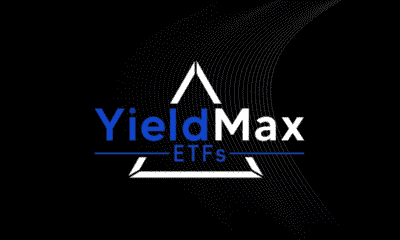
 Nyheter4 veckor sedan
Nyheter4 veckor sedanM5TYs senaste utdelningstakt (55 %) belyser covered call-strategins inkomstpotential
-
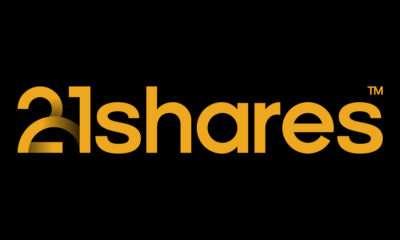
 Nyheter4 veckor sedan
Nyheter4 veckor sedanCould Bitcoin be the key to your dream house?
-

 Nyheter3 veckor sedan
Nyheter3 veckor sedanBörshandlade fonder för europeiska small caps
-
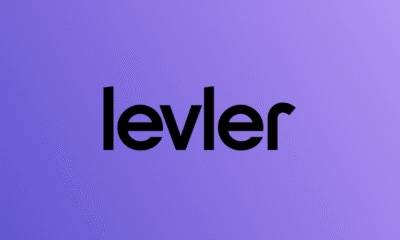
 Nyheter2 veckor sedan
Nyheter2 veckor sedanLevler noterar ytterligare fyra börshandlade fonder i Sverige
-
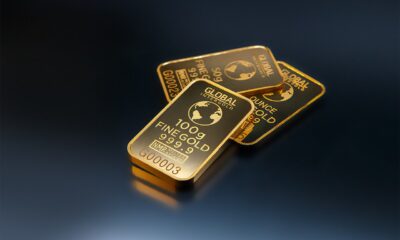
 Nyheter3 veckor sedan
Nyheter3 veckor sedanMiners Find Their Mojo as Gold Consolidates
-

 Nyheter4 veckor sedan
Nyheter4 veckor sedanTech multi-megatrend ETF utvecklar metodologi med tillägg av exponeringar mot kvantberäkning och försvarsteknik
-

 Nyheter4 veckor sedan
Nyheter4 veckor sedanState Street och Blackstone lanserar aktivt förvaltade CLO-ETFer i Europa


